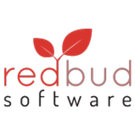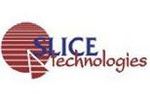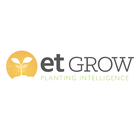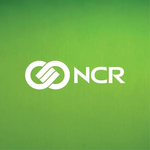What Is Garden Center Software?
Specialized software created especially for the gardening sector is known as garden center software. It provides a number of features and tools to help nurseries, garden shops, and plant merchants increase their overall productivity. Typically, the software provides features for customer administration, purchase orders, inventory management, point of sale (POS) systems, and reporting.
In order to make wise business decisions, garden stores can use these technologies to monitor their sales, inventory, and client information. The capacity of garden center software to monitor and manage plant inventory is one of its main advantages. This tool makes it simple for garden stores to keep an eye on their inventory levels and determine when to replenish popular items. Additionally, they can monitor costs, plant care guidelines, and other crucial information, which makes it simpler to give clients precise information.
Additionally, a POS system that enables safe and easy transactions is frequently included in garden center software. Garden centers can use this tool to log sales data, issue receipts, and accept a variety of payment options. This lowers the possibility of human error in addition to saving time. Another essential component of garden center software is customer management.
It enables garden centers to keep track of client data, including preferences, past purchases, and contact information. Customer happiness and loyalty can be raised by using this data to develop tailored customer experiences and focused marketing initiatives. Additionally, buy order and reporting tools are included in garden center software.
By enabling garden centers to originate and track orders online, purchase order management helps to expedite the ordering process. However, reporting systems assist garden stores make data-driven decisions by offering insightful information about sales, inventory, and customer data. Garden centers can gain a lot from investing in software since it boosts productivity, boosts sales, and improves the whole client experience.
Garden center software may help companies of all sizes and needs succeed in the cutthroat gardening sector thanks to its extensive feature set and customized solutions.
What Are The Recent Trends In Garden Center Software?
Specialized software for garden centers has been developed as a result of the gardening industry's dramatic expansion in the usage of technology in recent years. Numerous features are available in these cutting-edge instruments, which are intended to simplify and enhance a garden center's daily operations. The incorporation of point-of-sale solutions is among the most prominent developments in garden center software.
This enables garden centers to use a single, centralized system to track sales, manage inventory, and handle payments. As online shopping has grown in popularity, a lot of software programs now have eCommerce features, which makes it simpler for clients to buy goods from a garden center's website. The use of mobile technologies is another new development.
This gives garden centers mobile access to their software, which offers real-time updates on sales, inventory, and customer data. Additionally, it allows employees to handle transactions and provide remote customer service from any location in the garden center. Furthermore, a lot of garden center software now has sophisticated analytics and reporting capabilities.
In order to make data-driven decisions and maximize business operations, owners and managers can use this to monitor key performance indicators like sales, customer information, and inventory levels. Additionally, customization is becoming more and more crucial in garden center software. Garden centers can offer personalized marketing and incentives that are suited to particular client tastes and needs by storing customer information and purchase history.
Finally, the emergence of cloud-based technologies has simplified business operations management for garden centers. This ensures that the software is constantly secure and up to date by doing away with the need for costly on-site servers and enabling automatic updates and backups. These trends in garden center software are anticipated to develop and get better as technology advances, making it a necessary tool for any contemporary garden center.
When selecting a software solution, purchasers must carefully evaluate their budget and unique needs to make sure it fits their goals and keeps them ahead of the competition.
Benefits Of Using Garden Center Software
Managing sales, inventory, and client relations as a garden shop manager or owner may be a difficult undertaking. Nevertheless, you may increase overall efficiency and streamline these processes with the correct garden center software, increasing the effectiveness and profitability of your company.
The following are some of the main advantages of garden center software:
1. Inventory Management: The capacity of garden center software to efficiently manage inventory is one of its main advantages. The program can monitor your stock levels, notify you in real time when an item is running low, and even assist with replenishing orders. You may lower expenses and enhance customer satisfaction by avoiding stock shortages and overstocking with precise and current inventory information.
2. Point Of Sale (POS) System: To facilitate quick and simple sales transactions, the majority of garden center software comes with a POS system. This tool makes the checkout process quick and easy by tracking customer transactions, processing payments, and creating receipts.
3. Client Relationship Management (CRM): By keeping track of client data, past purchases, and preferences, garden center software frequently comes with a CRM system that aids in managing customer relations. By providing tailored discounts, promotions, and recommendations, this data can improve consumer satisfaction and eventually increase sales.
4. Reporting And Analytics: Through thorough reporting and analytics, garden center software can offer insightful information about the functioning of your company. You may find patterns, make wise choices, and enhance general business operations by examining sales, inventory, and customer data.
5. Integrated Marketing: To assist you in reaching and keeping clients, certain garden center software provides integrated marketing features like email marketing and loyalty plans. By delivering tailored promos and incentives to your devoted clientele, these features can boost customer engagement and boost revenue.
Important Factors To Consider While Purchasing Garden Center Software?
To make sure you are choosing the best option for your company, there are a number of aspects to take into account when buying garden center software. When looking for garden center software, have the following points in mind:
1. Features And Functions: It is essential to evaluate the software's features and functions prior to making a purchase. Prior to comparing the software's features with the tasks and processes you require it to manage, make a list of them. This will enable you to determine with certainty whether the program satisfies your company requirements.
2. User-Friendly Interface: Any software must have an intuitive user interface. Selecting software with an easy-to-use interface is essential because garden centers frequently employ employees with different degrees of technological ability. This will decrease the need for intensive training and guarantee a smooth adoption.
3. Compatibility And Integration: Accounting software, inventory management tools, and point-of-sale (POS) systems are just a few of the many systems and software that garden centers frequently utilize. Selecting garden center software that works with these current systems is crucial. Processes will be streamlined, and managing them independently will take less time and effort.
4. Customer Assistance And Training: The degree of customer assistance and training offered should be taken into account when purchasing garden center software. Software deployment success in your company can be significantly impacted by software providers who provide training programs and specialized support teams.
5. Cloud-Based vs. On-Premise: With cloud-based software solutions becoming more and more popular, it's critical to think about whether an on-premise or cloud-based software solution is best for your company. On-premise software offers greater control and customization choices, but cloud-based solutions are more accessible and flexible.
6. Budget And Pricing: Just like with any business expenditure, it's important to think about your budget and the software's cost. Even though choosing a less expensive solution could be alluring, keep in mind that a more feature-rich and reliable program might end up offering greater value over time.
7. Scalability: Your needs will expand along with your business. Selecting a garden center software that is scalable and can handle your expansion is crucial. This will spare you the trouble and expense of later software upgrades. To sum up, choosing the best garden center software necessitates carefully assessing your company's requirements as well as compatibility, support, budget, and scalability. By keeping these things in mind, you may choose software that will increase your garden center's productivity and profitability.
What Are The Key Features To Look For In Garden Center Software?
The correct software can make all the difference in how well your garden center is run. However, it can be difficult to choose the best solution for your company when there are so many on the market.
Here are the essential characteristics to search for in garden center software to assist you in making an informed choice:
1. Inventory Management: With the help of an extensive inventory management function, you can quickly monitor your stock levels and get alerts when supplies are running short. For accurate and current information, it should also be able to sync with your point-of-sale system.
2. System Of Point Of Sale: A seamless checkout process depends on an effective and user-friendly point-of-sale system. Look for features like the ability to make bespoke orders and quotes, numerous payment options, and barcode scanning.
3. Client Relationship Management (CRM): You can collect and arrange crucial client data with the aid of a CRM feature. This enables you to offer individualized service and focused marketing campaigns. Examples of this include contact information, past purchases, and preferences.
4. Reporting And Analytics: Making wise business decisions requires the ability to create reports and evaluate data. Seek out software that provides real-time data, configurable reports, and easily interpreted visual dashboards.
5. Plant Database: Managing plant inventory is one of the special requirements for garden center software. Choose software with a comprehensive plant database that contains easy-to-access images, care instructions, and growing habits.
6. Online Sales And E-commerce: Garden centers should have an online presence in the current digital era. To broaden your audience and boost sales, look for software that has e-commerce features or integrates with well-known online marketplaces.
7. Mobile Access: Having software that works on smartphones and tablets can significantly increase productivity and convenience, as many garden centers use mobile devices for customer interactions and inventory management.
8. User-Friendly Interface: Increasing productivity and cutting down on staff training time require software that is easy to use, has intuitive features, and is quick to navigate.
9. Customer Assistance And Updates: To make sure the software stays current and meets your company's demands, look for software that provides prompt customer assistance and frequent updates. You may get the best garden center software that suits your particular requirements and promotes the success of your company by taking into account these important aspects.
Why Do Businesses Need Garden Center Software?
Garden businesses can increase overall productivity and streamline operations with the use of garden center software, commonly referred to as nursery software. Adopting technology has become crucial for businesses in today's fast-paced industry in order to remain competitive and satisfy customers' constantly shifting needs.
The following are some main justifications for why your company requires garden center software:
1. Inventory Management: Effective inventory management is one of the main issues facing garden businesses. Businesses can ensure they always have the proper products in stock by using garden center software to track and manage their inventory in real-time. In addition to saving time, this lowers the possibility of losing revenue because the products are unavailable.
2. Point Of Sale (POS) System: Businesses can handle transactions fast and effectively thanks to Garden Center software's integrated POS system. This gives clients a smooth checkout experience by doing away with the necessity for manual entry and lowering the possibility of errors.
3. Printing Plant Tags: Garden centers frequently handle a wide range of plants, which makes it challenging to keep track of them all. Businesses can quickly create personalized plant tags with crucial details like maintenance guidelines, costs, and inventory status using garden center software. This helps businesses manage their inventory and makes it simpler for customers to discover the plants they need.
4. Customer Management: Establishing trusting bonds with clients is essential for any company. Businesses can keep a database of their clients with garden center software, which makes it simpler to keep track of their contacts, preferences, and purchases. This makes it possible for companies to successfully target their marketing campaigns and offer a customized buying experience.
5. Reporting And Analysis: Businesses can obtain important insights into their operations by using the comprehensive reports and analytics that Garden Center software offers. In the end, this increases profitability by assisting companies in making well-informed decisions about pricing, marketing tactics, and inventory management.
How Much Time Is Required To Implement Garden Center Software?
The size of your garden center, the intricacy of your procedures, and the particular features and modules that are part of the program can all affect how long it takes to implement garden center software. The installation procedure can take a few weeks to a few months on average. Gathering and organizing all pertinent business data, including inventory, customer, and sales information, is typically the first step in putting garden center software into place.
Depending on how much data you need to gather, this could take a few days to a few weeks. The next step is to collaborate with the software provider to tweak and modify the program to meet your unique company requirements. This can involve establishing user permissions, generating invoice and receipt templates, and establishing pricing, discounts, and taxes.
A few weeks to a month may pass during this period, depending on how complicated your business operations are. After setting up the program, you will need to teach your employees how to utilize it efficiently. To assist you and your team in becoming acquainted with the program, the majority of software vendors give training sessions or other tools. Depending on how complex the program is and how many employees need to be trained, this training procedure may take a few days to a week.
Lastly, it is crucial to test every feature and make sure everything is working properly before launching the product. Before the software is fully installed, any issues found during this testing process, which may take a few days, should be fixed. The typical time needed to install garden center software is between four and eight weeks.
It is important to remember, nevertheless, that if you have particular business needs or if unexpected difficulties come up during the process, the implementation phase can take longer. A seamless and effective transition to garden center software for your company can be ensured by collaborating closely with the software provider and setting aside adequate time for appropriate installation.
What Is The Level Of Customization Available In Garden Center Software?
many levels of customization are offered by the many garden center software choices that are now on the market. The flexibility of the software to be modified to meet the unique demands and specifications of a garden center is referred to as customization. It enables users to customize the program to fit their particular workflows, data management requirements, and business processes.
The degree of customisation provided by a garden center software is crucial to evaluate since it has a significant influence on the effectiveness, output, and general success of your company. While some software may be extremely customizable, allowing you total control over its features and functions, others may only offer a limited number of modification possibilities.
Depending on the vendor and the particular features of the software, different garden center software may offer varying degrees of flexibility. In general, garden center software comes with a range of customization options, from simple to sophisticated. At the most basic level, garden center software might let you personalize key elements like inventory, pricing, and client data.
Simple or small garden centers can still benefit from this degree of personalization. However, sophisticated customization features will enable you to adapt the software to the particular requirements of your company. This could entail establishing user roles and permissions, interacting with other programs or systems, and producing unique fields, templates, and reports.
When assessing the degree of customisation offered by garden center software, it's critical to take your company's present and future requirements into account. It is advisable to get highly configurable software that can adjust to your changing needs if you expect growth and expansion. Furthermore, it's important to consider how simple it is to customize. While some software has drag-and-drop customization interfaces that are easy to use, others may need programming or technical know-how.
Which Industries Can Benefit The Most From Garden Center Software?
For companies operating in the horticulture sector, garden center software has become a vital tool. Garden centers benefit from its cutting-edge features and functions, which streamline operations, improve customer satisfaction, and boost profitability. Which sectors, however, stand to gain the most from garden center software? Let's investigate.
1. Garden Centers: It goes without saying that the main users of garden center software are garden centers. These companies sell a wide range of goods, including gardening equipment, accessories, seeds, and plants. They may track sales and buy orders, manage their inventory, and create reports to evaluate the performance of their business with the use of garden center software. Through features like online ordering, loyalty programs, and mobile apps, the software also enables them to provide their customers with a flawless shopping experience.
2. Landscaping Businesses: Garden center software can also be very helpful to landscaping businesses. These companies typically handle a lot of requests for plants and materials, and handling them by hand can be laborious and error-prone. They may manage project schedules, provide thorough task estimates, and keep tabs on their spending with the help of the program. Additionally, they can utilize the program to produce 3D designs for their clients, which facilitates the communication of their landscaping project concept.
3. Nurseries: Nurseries are large-scale businesses that grow and sell a broad range of plants to garden centers, landscaping firms, and private consumers. For these firms, maintaining order records, monitoring crop development, and managing inventory can be difficult tasks. Nurseries can use garden center software to schedule deliveries, track plant growth, and keep precise inventory records. Additionally, it has capabilities like batch tracking and barcoding that make managing big plant populations easier.
4. Florists: Since they work with seasonal and perishable plants and flowers, florists can also profit from garden center software. They may create and handle orders, check sales patterns, and keep an eye on stock levels with the use of the software's inventory management features. Additionally, they may utilize the program to make personalized arrangements and designs for their customers, which will improve the effectiveness and organization of their service.
5. Garden Designers And Consultants: These professionals collaborate closely with their customers to create distinctive and customized outdoor environments. They frequently source materials and plants for their projects as well. These experts can simply keep track of project costs, manage their inventory, and produce intricate designs for their clients with garden center software. Through the integrated communication tools, they may also utilize the software to schedule appointments and interact with their clients.
Conclusion
It is evident from the conclusion of our in-depth buyer's guide for Garden Center Software that this technology has developed into a vital resource for companies operating in the horticulture sector. Garden center software offers a number of features that can significantly help your company, from staff and inventory management to an effective point-of-sale system.
The main elements to take into account while selecting the best garden center software for your company have been covered in this tutorial. These consist of the software's cost structure, ease of use, and compatibility with your current systems. To make the greatest choice for your company, it is essential to thoroughly consider each of these factors.
We have also talked about the best garden center software choices on the market, emphasizing their special qualities and user feedback. When contrasting several software programs, this data might be a helpful point of reference. Additionally, we have emphasized the potential advantages of putting garden center software into practice, including enhanced productivity, greater customer support, and improved organization.
Garden center software is a wise investment because of these benefits, which have a direct impact on your company's success and profitability. To sum up, purchasing garden center software can significantly help your company and aid in its expansion and prosperity. We are certain that you will be able to locate the ideal software solution that fits your particular requirements thanks to the wide range of solutions available and our thorough guide to help.
To make an informed choice, keep in mind the important aspects we have covered and spend time carefully investigating and assessing each choice. Here's to using garden center software to optimize your business's potential and streamline your operations.
















